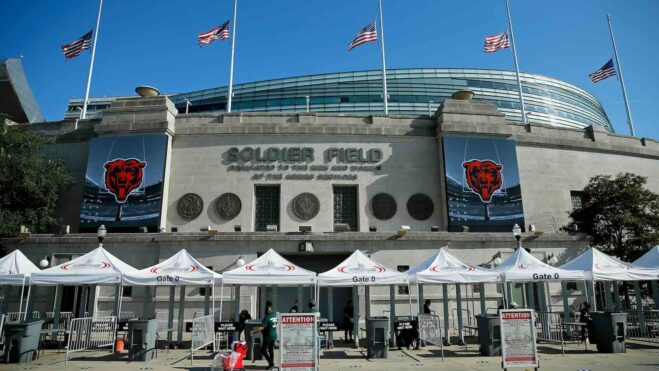DraftKings And White Hat Gaming Fined For Online Slot Game In Connecticut That Awarded No Wins
For a full week, Deal or No Deal Banker’s Bonanza was mistakenly set to 0% RTP
3 min

The Deal or No Deal Banker’s Bonanza online slot became simply No Deal for some DraftKings Casino players in Connecticut recently. Now, DraftKings has had to make a deal with the state’s gaming regulator that will cost it and the game’s supplier.
The online slot failed to pay out any winnings over a one-week period in August 2023. As a result, Connecticut fined DraftKings and game developer White Hat Gaming a total of $22,500.
With a return to player (RTP) of 94.95%, Deal or No Deal Banker’s Bonanza is advertised to return nearly $0.95 for every dollar players spend. However, from Aug. 15-21 of last year, 522 players in Connecticut wagered almost $24,000 on over 20,000 spins combined and received no payouts whatsoever, according to an investigative report by Connecticut’s Department of Consumer Protection (DCP).
The DCP’s report, published by CT Insider, highlighted that the problem persisted for a full week, and that there was no way a Connecticut player could have won a round of gameplay during this time.
The issue arose due to a critical error in the game’s software, which was not loaded correctly. This malfunction effectively set the game’s RTP to 0%, which means it would never land on a win.
Customer complaints
Players began raising concerns almost immediately after the malfunction started. On Aug. 16, just one day into the malfunction period, an unidentified player filed an online complaint with DraftKings, stating that they had completed “a couple hundred spins” at $0.20 per spin without a single winning outcome.
The player questioned the accuracy of the RTP, noting their suspicion that something was amiss. DraftKings responded the following day, assuring the player that the outcomes of the game were random and dismissing the possibility of an issue with the game.
Further complaints followed, with players expressing similar concerns about the lack of payouts. On Aug. 20, another player reported taking over 100 spins without a single win, which they described as highly unusual. Despite these mounting complaints, DraftKings continued to assure customers that the game was functioning correctly, attributing their experiences to bad luck rather than a software glitch.
It wasn’t until Aug. 22, a full week after the issue had started, that the problem was addressed. By that time, White Hat Gaming had completed an internal investigation and determined that the issue was related to the improper loading of a file in the game’s software.
The game was relaunched after the issue was fixed, and all affected players were refunded by Aug. 29. However, the refunds were issued without any notification or explanation to the players about the reason behind them.
Glitches happen, but …
The DCP’s report was critical of both companies’ handling of the situation. It pointed out that neither DraftKings nor White Hat Gaming reported the issue to the agency until it specifically requested information on Aug. 31, more than two weeks after customers began lodging complaints. This delay in reporting was a violation of Connecticut’s state regulations, which mandate timely notification of any issues that affect game payouts.
In January 2024, White Hat Gaming agreed to pay a fine of $3,500 to the DCP for operating the game with a 0% RTP and failing to meet the state’s reporting requirements. In April, DraftKings settled with the DCP by agreeing to pay a $19,000 fine for its part in the incident.
Kaitlyn Krasselt, a spokesperson for the DCP, noted that while White Hat Gaming responded quickly to the DCP’s inquiries, DraftKings’ response to consumer complaints was found to be unsatisfactory. As a result, the DCP has instructed DraftKings to implement stricter internal controls, submit regular reports for new games, and improve its process for handling consumer complaints.
DraftKings, in its defense, stated that the issue originated with White Hat, and that it had identified and escalated the potential issue within 48 hours of the game’s launch. The company also emphasized that all customers who played before the glitch was identified have received refunds. It also reiterated its commitment to ensuring the integrity of its products and the satisfaction of its customers.
RNGs and RTPs make iGaming possible
Online games such as slots, poker, and blackjack use algorithms to determine outcomes through random number generators (RNGs). These ensure that each spin of the slot reels or each hand dealt in card games is independent and as random as possible, mimicking the unpredictability of real-life casino games.
To maintain trust, online gaming systems are often certified by independent testing agencies like eCOGRA or iTech Labs, which conduct thorough assessments to confirm the integrity and fairness of the algorithms. Additionally, online gaming platforms are subject to strict regulatory oversight, where gambling commissions enforce standards for fairness.
In conjunction with the use of RNGs, the RTP describes the percentage of all wagered money a slot machine will theoretically pay back to players over time. For instance, a slot with an RTP of 95% means that, on average, it will return $95 for every $100 wagered.
While the RTP provides insight into the potential payback of a game, it does not guarantee individual wins or losses, as each spin is subject to the game’s designed randomness and its RNG algorithms.





